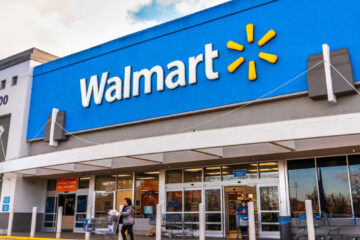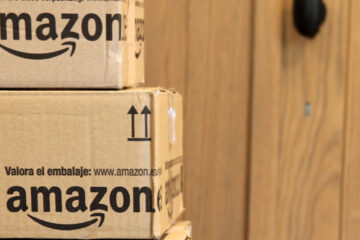It is no secret that Target (TGT) has been suffering from shifting consumer trends over the past few years, which has gradually had a major impact on its sales.
The retail giant has continuously been embroiled in controversy. First, in 2023, it faced boycott calls from conservative consumers over its pride collection, which received backlash for containing items marketed toward children.
💵💰Don’t miss the move: Subscribe to TheStreet’s free daily newsletter 💰💵
Target also faced scrutiny last year for having diversity, equity, and inclusion policies in place, and when it finally removed them in January this year, consumers threatened to boycott.
Related: Target sounds alarm on unexpected customer behavior
Amid the controversy, Target revealed in its latest earnings report that it expects that its net sales this year will only increase by 1%, reflecting flat comparable sales growth.
During an earnings call in March, Target Chief Financial Officer Jim Lee said that the company’s sales predictions for 2025 reflect “a wide range of potential scenarios and uncertainty” in the market, including the threat of tariffs.
“We’re going to be focusing on controlling what we can control,” said Lee during the call. “What we don’t know is potential consumer demand that’s across the board, across – based on how tariffs ripple across the economy, for instance. But we have that wide range for a reason.”
Tariffs are taxes companies pay to import goods from overseas, and the extra cost is often passed down to consumers through price hikes.
On March 4, President Donald Trump enforced 20% tariffs on all goods imported from China and 25% on all goods imported from Mexico and Canada.
Target makes controversial move as tariffs threaten price hikes
Amid the threat of tariffs raising prices, further harming sales by scaring away price-conscious consumers, Target is reportedly asking some Chinese suppliers to decrease prices on goods, according to a recent report from Quartz.
People walking in front of the facade and entrance of the Target store on the second floor of the East River Plaza shopping mall in East Harlem, New York City.
MDoculus/Getty Images
This change would shift the burden of tariffs onto those suppliers.
One Chinese supplier even told Quartz that Target asked them if they could “pick up half the costs of the tariffs.” When the supplier tried to negotiate with Target, the retail giant allegedly stopped doing business with them.
The recent move from Target follows in Costco and Walmart’s (WMT) footsteps as both retailers also recently asked their Chinese suppliers to cut prices.
Related: Walmart makes unexpected move to minimize threat of tariffs
Walmart even faced scrutiny from China for making such a bold request. Last month, China TV broadcaster CCTV posted on its official social media account, Yuyuantantian, stating that Walmart’s request was “unreasonable.”
“Walmart’s demand for Chinese suppliers to bear the full tariff burden is unreasonable and disrupts fair competition and international trade order,” reads the post.
Chinese manufacturers also took to social media to claim that Chinese companies “have no room to lower prices in response to US tariffs.”
Target CEO reveals blunt truth about Trump’s tariffs
Target’s behind-the-scenes negotiations with suppliers come after Target CEO Brian Cornell warned consumers last month that Trump’s tariffs would likely increase prices in stores.
During Target’s annual investor meeting, Target Chief Commercial Officer Rick Gomez emphasized that the company is proceeding cautiously when it comes to adjusting its prices due to tariffs.
More Retail:
AT&T quietly issues stern warning to customers Sam’s Club makes a big change to a beloved membership perkGameStop announces risky move amid store closures
“We have to think about this from a consumer perspective and make sure that our pricing architecture makes sense and puts us in a place where we are competitive and we have affordable options,” said Gomez.
Many consumers across the country have been growing anxious about the impact Trump’s tariffs will have on prices, and these concerns could negatively affect consumer spending.
According to a recent market pulse survey from InMoment, 56% of the survey’s respondents expect prices for goods and services to increase due to Trump’s tariffs.
In response to these expected price hikes, 60% of respondents said they are contemplating changing their shopping behavior, with more expecting to shop less rather than more.
Related: Veteran fund manager unveils eye-popping S&P 500 forecast


